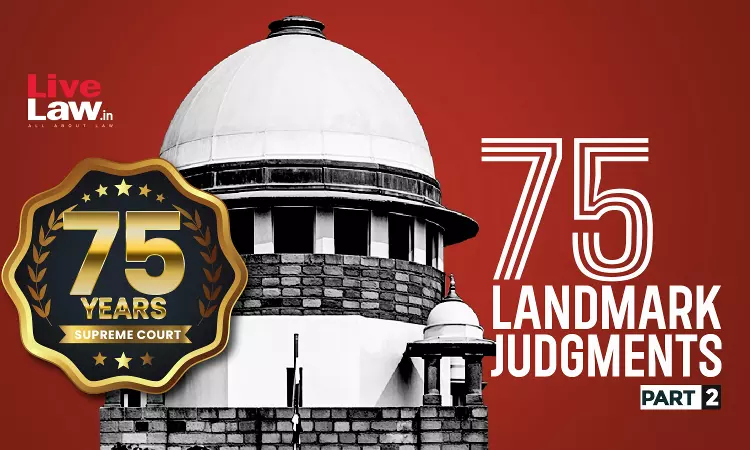- Home
- /
- Supreme court
- /
- 75 Important Judgments Of The...
75 Important Judgments Of The Supreme Court: Part II | Celebrating 75 Years of India's Supreme Court
Gursimran Kaur Bakshi
29 Sept 2024 10:47 AM IST
In Part II of the 75 landmark judgments of the Supreme Court, we look at another set of 25 judgments relating to Article 21 including unenumerated rights. Due process and interrelatedness of rightsDue process guarantees not included in Article 21 In 1950, in A.K. Gopalan v The State of Madras, the Supreme Court upheld the constitutional validity of the Prevention Detention Act, 1950, except...
Tags
SupremeCourt75 Years Of The Supreme Court Of IndiaImportant Judgments#AK Gopalan Vs State of Madras#Menaka Gandhi v. Union of IndiaKS Puttaswamy Vs Union of IndiaDeath PenaltyBachan Singh v. State of PunjabCustodial tortureCommon Cause v Union of IndiaShakti Vahini v. UOIShafin Jahan v. Asokan K.M. and Others hSunil Batra v. Delhi AdministrationArnesh Kumar v. State of BiharD.K. Basu v. State of West BengalPrabir Purkayastha v. StatePankaj Bansal v. UOI
Next Story



